Essential Tips for Choosing the Perfect Boat Trailer: A Comprehensive Guide for New Owners
Choosing the right boat trailer is a crucial decision for new boat owners, as it directly impacts the safety, efficiency, and longevity of both the trailer and the boat. According to the National Marine Manufacturers Association (NMMA), the recreational boating industry experienced a significant growth, with over 1 million new boats sold in 2022, highlighting the increasing passion for boating in America. However, this boom also underscores the necessity of selecting an appropriate boat trailer to ensure safe transport, storage, and launch practices. A well-fitted, durable boat trailer not only enhances the boating experience but also prevents costly damages and accidents on the road. With various options available, understanding the key factors that influence trailer selection—such as weight capacity, frame material, and axle configuration—can lead to a more informed purchase decision, ultimately facilitating a better enjoyment of marine adventures.
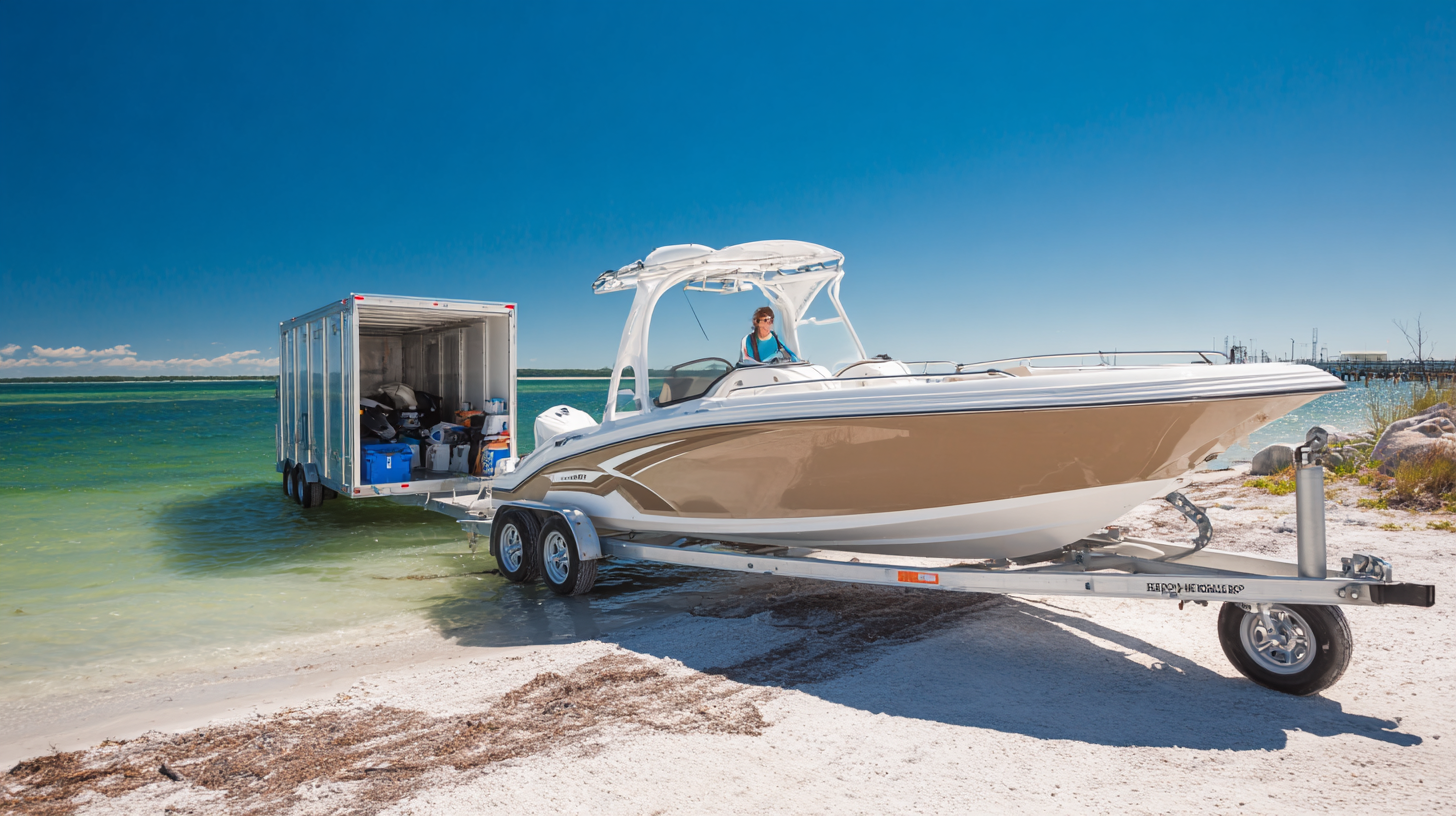
Top 5 Factors to Consider When Selecting Your Ideal Boat Trailer
When it comes to choosing the perfect boat trailer, several key factors can impact your decision significantly. The first and foremost consideration is the weight capacity of the trailer. It’s essential to select a trailer that can safely carry your boat's weight, including any additional gear. Overloading a trailer can lead to dangerous and damaging consequences, so always check the manufacturer's specifications to ensure a proper match.
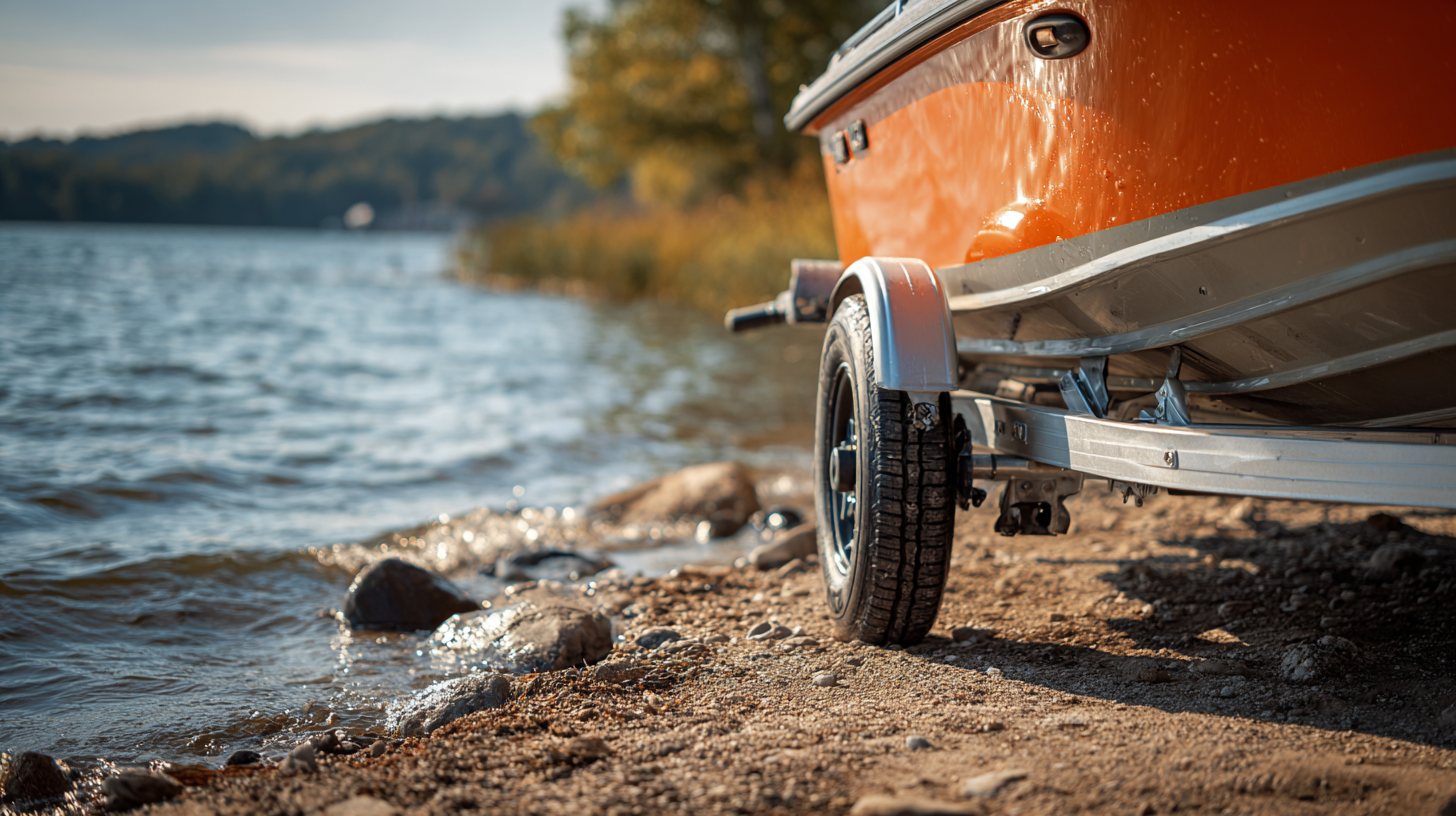
Another important factor is the frame construction. Look for trailers made from durable materials such as galvanized steel or aluminum, which can withstand harsh marine environments. Additionally, consider the design of the trailer; a bunk-style trailer can offer better support and stability for your boat, especially if it's larger or heavier.
Don’t forget about the trailer's features, such as adjustable bunks, fenders, and brakes. These elements can enhance convenience and safety while launching or retrieving your boat. Finally, make sure to assess the compatibility of the trailer with your vehicle to ensure a smooth towing experience. Choosing the right boat trailer involves careful thought and consideration, but addressing these top factors will guide you toward making a smart investment.
7 Key Features That Make a Boat Trailer Stand Out
Choosing the perfect boat trailer can be a daunting task for new owners, but focusing on key features can make the process easier. One essential aspect to consider is the trailer's weight capacity. Ensure that the trailer can comfortably support your boat's weight along with additional gear, which will prevent any structural issues during transportation. Additionally, look for trailers with adjustable bunk systems that can accommodate various boat hull shapes, providing better support and stability while towing.
Another standout feature is the braking system. A reliable braking system is crucial for safety, especially when towing larger boats. Consider trailers equipped with surge brakes or electric brakes to enhance stopping power and control on the road. Additionally, the quality of the tires and wheels should not be overlooked; premium tires can improve traction and decrease the risk of blowouts, ensuring a smoother towing experience.
Finally, examine the trailer's frame construction. Opt for trailers made of galvanized steel or aluminum, as these materials resist rust and corrosion, extending the lifespan of your investment. These features, combined with proper maintenance, will ensure that your trailer remains reliable and efficient for years to come.
3 Types of Boat Trailers and Their Best Uses
When selecting the right boat trailer, understanding the three main types can significantly influence your decision. The first type is the **bunk trailer**, which features soft, padded bunks that provide excellent support for the hull of the boat. This type is ideal for larger boats or those with deep V hulls, as it cradles the boat securely during transport. The bunk trailer's design also allows for easy loading and unloading, making it a popular choice among new boat owners.
The second type is the **roller trailer**, which utilizes a series of rollers to facilitate loading and launching. This design is particularly beneficial for smaller, lighter boats, as the rollers reduce friction and allow the boat to glide on and off with minimal effort. Roller trailers are highly versatile, accommodating various boat shapes and sizes, and are especially advantageous in shallow ramps.
Lastly, there are **tilt trailers**, which provide a unique functionality by allowing the trailer bed to tilt backward. This feature simplifies loading and unloading, making it ideal for those who may frequently launch their boats in less-than-ideal conditions. Tilt trailers are particularly suitable for smaller to mid-sized boats, offering convenience without sacrificing safety or stability during transport. Choosing the right trailer type ensures a smoother and more enjoyable boating experience.
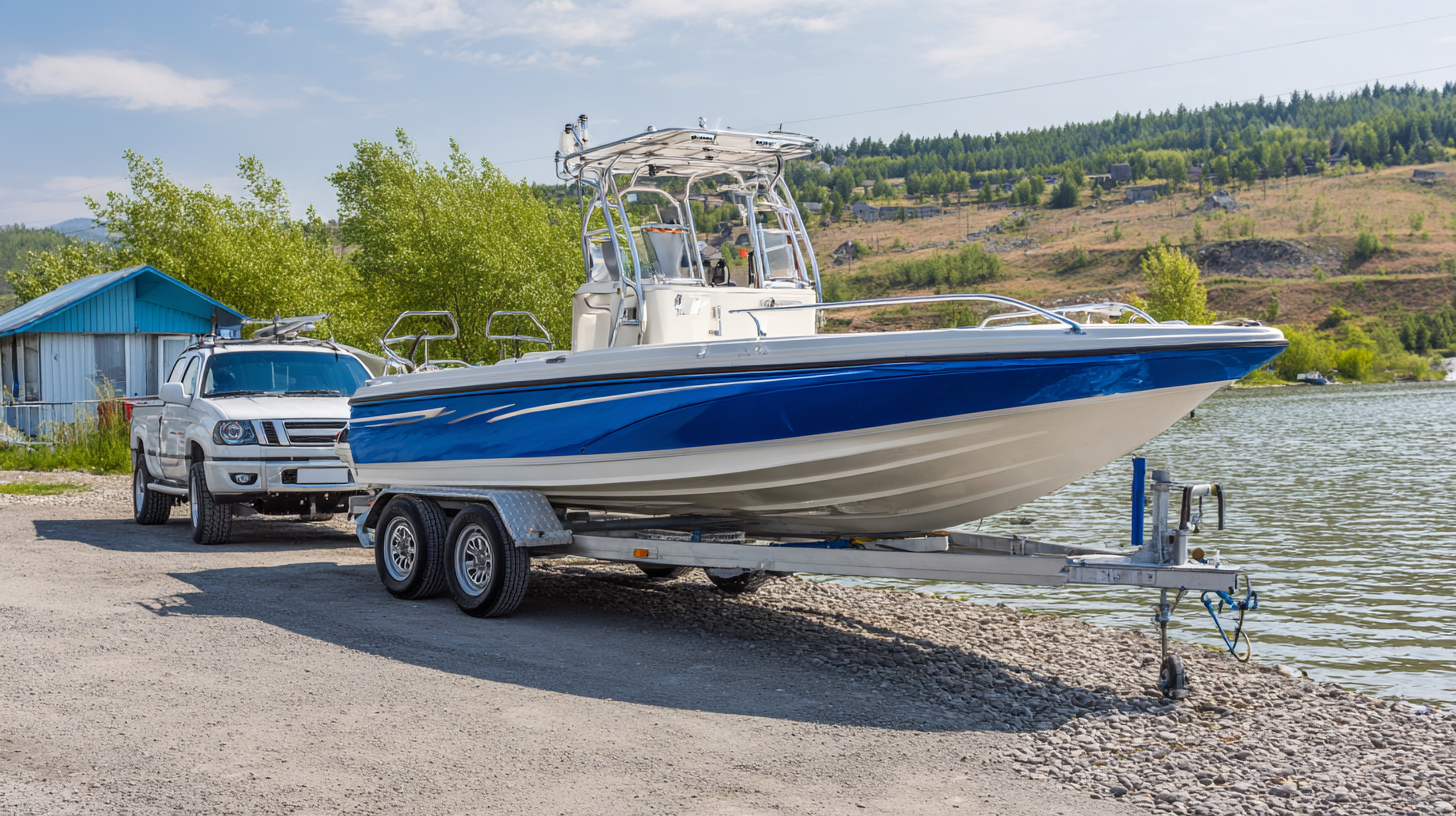
6 Common Mistakes to Avoid When Buying a Boat Trailer
When purchasing a boat trailer, avoiding common mistakes can save you time, money, and frustration. One frequent error is underestimating the trailer's capacity. Many new owners fail to consider the weight of the boat, gear, and any other accessories. It's crucial to select a trailer that can handle the total weight, including safety margins to ensure durability and performance.
Another pitfall is neglecting to check the trailer's dimensions and compatibility with your vehicle. Many buyers overlook the importance of frame width and length, which can lead to difficulties in loading and towing. Additionally, failing to inspect the quality of the trailer components, such as the axle and tires, can result in costly repairs or unsafe conditions on the road. By focusing on these aspects, new boat owners can make informed decisions that enhance their boating experience.
Essential Tips for Choosing the Perfect Boat Trailer
| Tip | Description |
|---|---|
| 1. Determine the Right Size | Ensure the trailer is compatible with your boat's length and weight to ensure safety and ease of use. |
| 2. Check Load Capacity | Verify the trailer's load capacity to prevent overloading, which can lead to trailer damage and unsafe driving. |
| 3. Assess the Trailer Material | Choose materials that are durable and resistant to corrosion, such as galvanized steel or aluminum. |
| 4. Inspect Tire Quality | Ensure the tires are in good condition, properly inflated, and suitable for the weight of the trailer and boat. |
| 5. Evaluate Trailer Features | Consider additional features like adjustable bunks, braking systems, and lighting for improved usability. |
| 6. Consider Storage and Maintenance | Think about how you will store the trailer and the maintenance required to keep it in good condition. |
Common Mistakes to Avoid When Buying a Boat Trailer
| Mistake | Consequences |
|---|---|
| 1. Neglecting Weight Limits | Overloading can cause damage to trailer and vehicle, and may lead to accidents. |
| 2. Ignoring Compatibility | Mismatch can lead to difficulty in towing, poor handling, and potential safety hazards. |
| 3. Underestimating Maintenance Costs | Failure to account for ongoing maintenance can lead to unexpected expenses and safety risks. |
| 4. Skipping a Test Drive | Not testing can result in discovering issues only after purchase, leading to inconvenience and cost. |
| 5. Overlooking Warranty Details | Unawareness of warranty limitations can leave you unprotected against defects or damages. |
| 6. Failing to Research | Not doing your homework can lead to poor purchase decisions and dissatisfaction. |
4 Essential Accessories for Enhancing Your Boat Trailer Experience
When it comes to enhancing your boat trailer experience, the right accessories can make all the difference. One of the most essential accessories is a quality winch. A reliable winch allows you to easily load and unload your boat, ensuring that the process is smooth and safe. When choosing a winch, consider its weight capacity and gear ratio to match your boat's specifications.
Another important accessory is a set of LED trailer lights. Upgrading to LED lights not only improves visibility during nighttime towing but also increases safety on the road. They are more energy-efficient and durable compared to traditional lights, reducing the need for frequent replacements.
Lastly, investing in a trailer guide-on system will greatly assist in aligning your boat while loading. These guides help you position your boat correctly on the trailer, minimizing the chances of damage. When selecting guide-ons, ensure they are adjustable to fit various boat sizes and styles for the best fit.
With these tips and accessories, new boat owners can enhance their trailer experience, making every outing enjoyable and stress-free.
Essential Tips for Choosing the Perfect Boat Trailer
This chart represents important factors for new boat trailer owners to consider when making a purchase. Each factor is rated on a scale from 1 to 10 based on its overall importance.
Related Posts
-

Ultimate Guide to Choosing the Best Aluminum Boat Trailer for Global Buyers
-
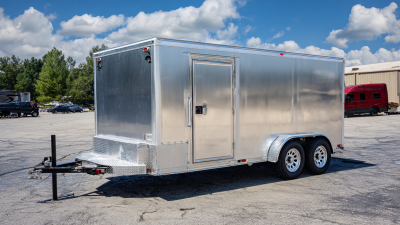
Unlocking Advantages: Why the Best Aluminum Trailers Lead the Market in Durability and Performance
-

Excellence in Trailer Parts Manufacturing: Bridging China’s Innovation to Global Markets
-

Exploring Innovative Alternatives for Boat Trailer Parts to Enhance Your Marine Experience
-
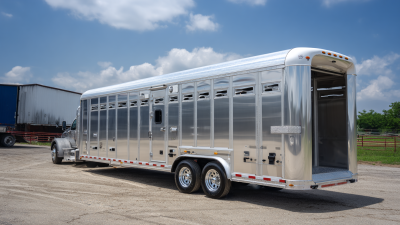
The Ultimate Guide to Choosing the Perfect Aluminum Trailer for Your Needs
-

The Future of Enclosed Trailers Embracing Innovative Designs and Sustainable Practices
